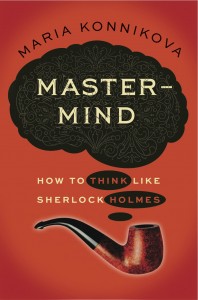
Category: Literary Fiction Reviews
Interview with Carmel MacDonald Grahame
The author of Personal Effects reads from and talks about her novel and how the story came together, about the cyclical (and pieced together) nature of time in her book, about mosaic (pique assiette) and its role in the novel,…
A review of Personal Effects by Carmel Macdonald Grahame
 Personal Effects is the story of a couple on the move –repeatedly changing country in search of work, exiled and migratory, homeless yet rooted through their sense of family; of consistency in their relationship. Beyond that the story explores what we lose and what we gain, throughout any ordinary life. It explores the shifting and cyclical perceptions of time passing, and it examines, in a deep, poetic way, the way we make meaning out of our lives.
Personal Effects is the story of a couple on the move –repeatedly changing country in search of work, exiled and migratory, homeless yet rooted through their sense of family; of consistency in their relationship. Beyond that the story explores what we lose and what we gain, throughout any ordinary life. It explores the shifting and cyclical perceptions of time passing, and it examines, in a deep, poetic way, the way we make meaning out of our lives.
A review of Steal the North by Heather Brittain Bergstrom
 Heather Brittain Bergstrom’s novel is outstanding for its evocation of place. In a promotional interview, she notes that she was born and raised in Moses Lake, Washington, between two large Indian reservations, the Colville and the Yakama. Now living in northern California, she sometimes longs for the Pacific Northwest’s rugged, open landscapes, cowboys, Indians, wind, sage, large rivers, dams, and miles of “nothingness.”
Heather Brittain Bergstrom’s novel is outstanding for its evocation of place. In a promotional interview, she notes that she was born and raised in Moses Lake, Washington, between two large Indian reservations, the Colville and the Yakama. Now living in northern California, she sometimes longs for the Pacific Northwest’s rugged, open landscapes, cowboys, Indians, wind, sage, large rivers, dams, and miles of “nothingness.”
 We have a copy of the newly released 25th anniversary edition of The Joy Luck Club by Amy Tan to giveaway. To win, just sign up for our Free Newsletter.
We have a copy of the newly released 25th anniversary edition of The Joy Luck Club by Amy Tan to giveaway. To win, just sign up for our Free Newsletter.
The winner will be drawn on the first of May 2014 from subscribers who enter via the newsletter. Good luck!

The winner will be drawn on the first of April 2014 from subscribers who enter via the newsletter. Good luck!
Vanessa Berry on Ninety 9
The author of Ninety 9 reads from and talks about her new book, about band t-shirts, growing up in the 1990s (and what has and hasn’t changed), on the joy of ‘zines, on the conjunction of the mythical and the…
 We have a copy of I Always Loved You by Robin Oliveira to giveaway. To win, just sign up for our Free Newsletter.
We have a copy of I Always Loved You by Robin Oliveira to giveaway. To win, just sign up for our Free Newsletter.
The winner will be drawn on the first of March 2014 from subscribers who enter via the newsletter. Good luck!
A review of Dying by Arthur Schnitzler
 Schnitzler’s prose in Anthea Bell’s luminous translation can best be described as spare and poetic. Every detail seems not only important but necessary. There is a precision of scene and expression. Not a single word is wasted.
Schnitzler’s prose in Anthea Bell’s luminous translation can best be described as spare and poetic. Every detail seems not only important but necessary. There is a precision of scene and expression. Not a single word is wasted.
 We have a copy of Mastermind: How to Think Like Sherlock Holmes by Maria Konnikova to giveaway. To win, just sign up for our Free Newsletter.
We have a copy of Mastermind: How to Think Like Sherlock Holmes by Maria Konnikova to giveaway. To win, just sign up for our Free Newsletter.
The winner will be drawn on the first of February 2014 from subscribers who enter via the newsletter. Good luck!